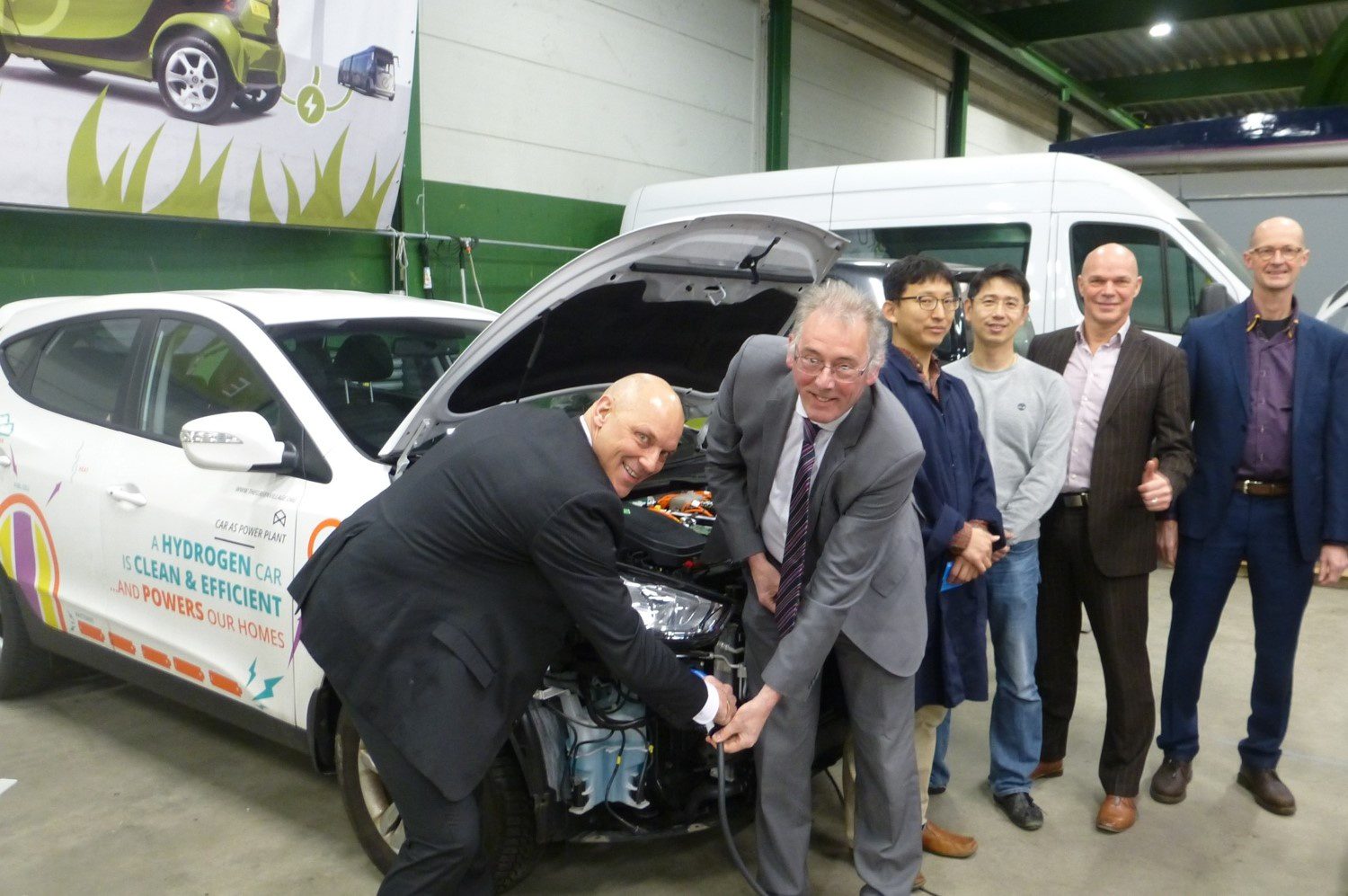A fuel cell car supplying electricity
Researchers at Delft University of Technology managed to successfully engineer and install a socket on a fuel cell car that serves as an electricity outlet. In close collaboration with innovative commercial parties like Accenda, Stedin, Shell, Hyundai, RDW and Gasterra and with students from TU Delft, The Hague University of Applied Sciences and ROC Mondriaan, they converted the zero-emission Hyundai IX35 FCEV into a power plant on wheels.
Car as Power Plant
The research group Future Energy Systems, led by professor Ad van Wijk at the Process & Energy department, faculty of 3mE, researches several kinds of integrated system applications of the fuel cell, as they do in the programme Car as Power Plant. Fuel cell cars produce electricity, heat and clean water out of hydrogen. This can be used in homes, schools and offices. The converted Hyundai fuel cell car now has a capacity of 10 kW. That is sufficient to power an average of ten homes. With the socket in place the innovators managed to moderate the car in such a way that it can distribute its electricity to the grid or even directly to a house, for instance to complement the available wind and solar power. These applications will be researched and tested in the next stage of the programme.
Paradigm shift on a systems level
This specific innovation brings along many more technological challenges. How can the car distributes its electricity to the grid in such a way that the grid becomes stable, considering the fluctuations in the supply of wind and solar resources? And how to produce hydrogen locally and sustainably, for instance using solar power, and having the hydrogen then stored and distributed.
Also non technological challenges will arise, related to for instance the business models of energy companies, the acceptance by car owners, the applicability of existing laws and regulations about energy production and distribution or even the training and education for the automobile or installation sector. If these kind a paradigm shifting innovations are to be implemented successfully in practice, it is mandatory to think and innovate on a systems level.






